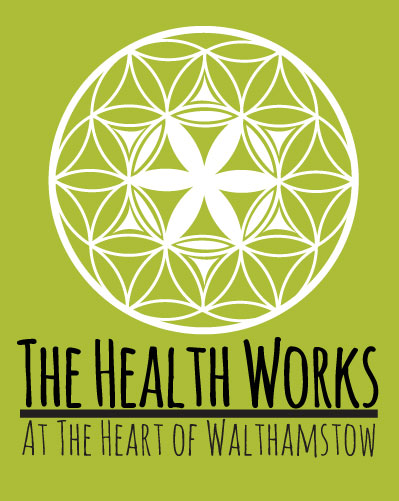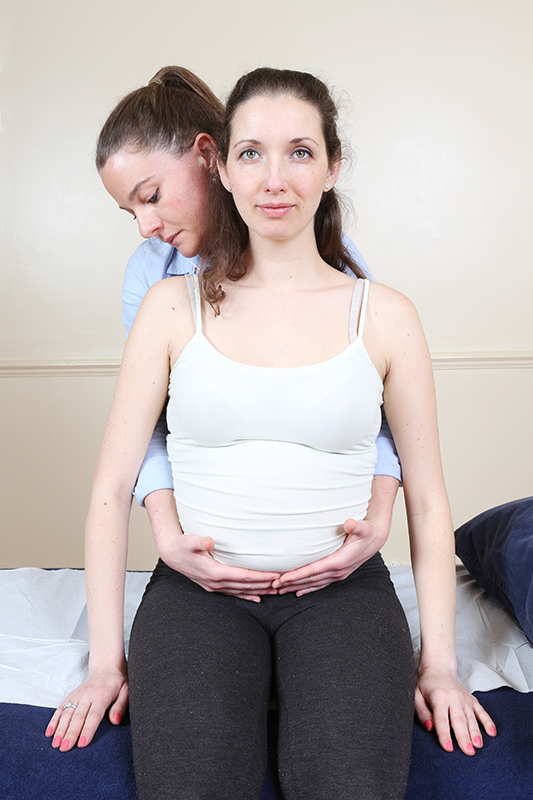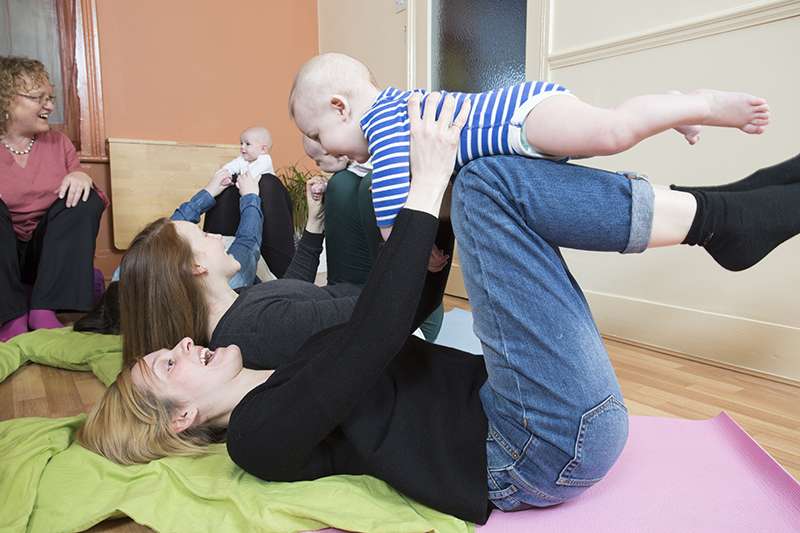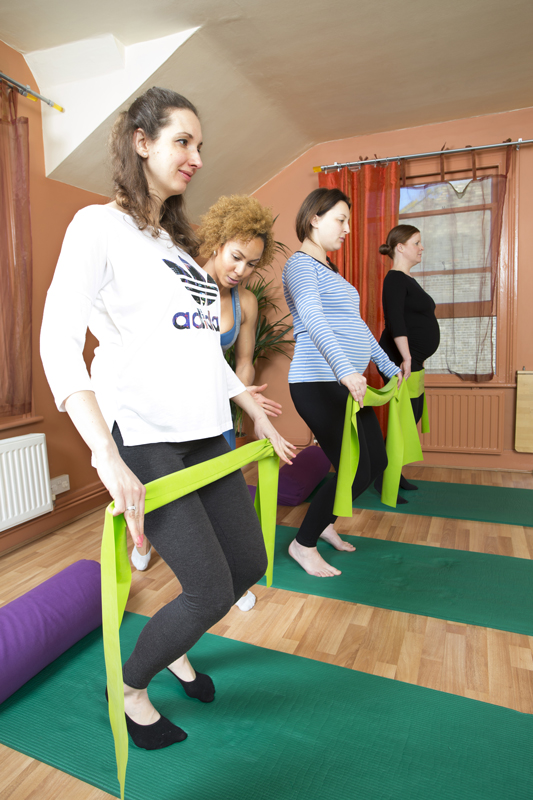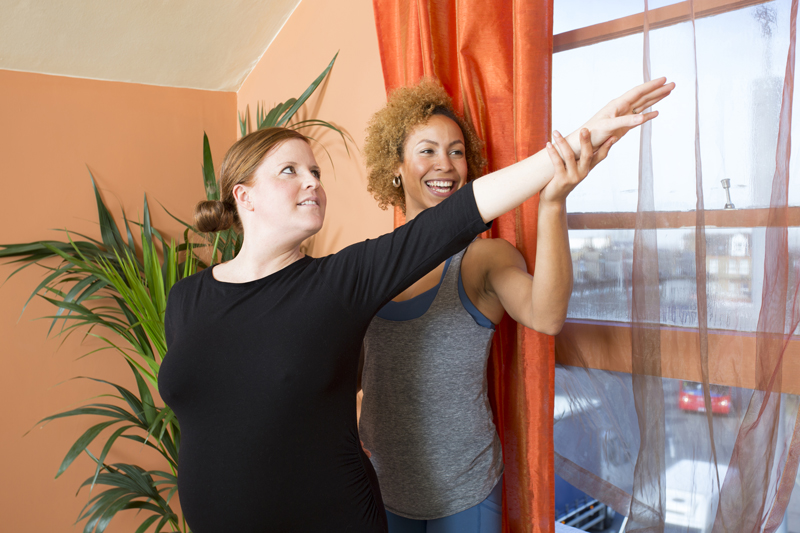Birth, babies & beyond
Baby Clinic | Birth Kit | Inductions | Parent and Baby Massage and Yoga | Working Parent and Baby Massage and Yoga | Prenatal Pilates | Postnatal Pilates with (or without) Baby | Antenatal Yoga | Postnatal Yoga with (or without) baby | Baby and Toddler Sleep Clinic | Birth Preparation Workshops for Couples
Baby Clinic
The team:
Jo Redmond | Virtu Tomás Rodríguez
On Fridays, 1 – 2pm, Health Works invites you to our free ante-natal/post-natal advice clinics. We have homeopaths providing homeopathic information on pregnancy health issues; pain relief during labour; post-natal problems including breastfeeding and depression; newborn babycare including colic, fevers, rashes, teething; general childhood ailments and diseases.
We have a wide variety of complementary therapies that are ideally suited to pregnant women and their babies. Included are acupuncture, homeopathy, hypnotherapy, osteopathy, reflexology and a wide range of massage therapies. We also carry out safe, natural methods of induction. The Baby clinics are a drop-in advice service for pregnant women and their partners and for parents with babies.
Please call reception in morning to check the baby clinic is running.
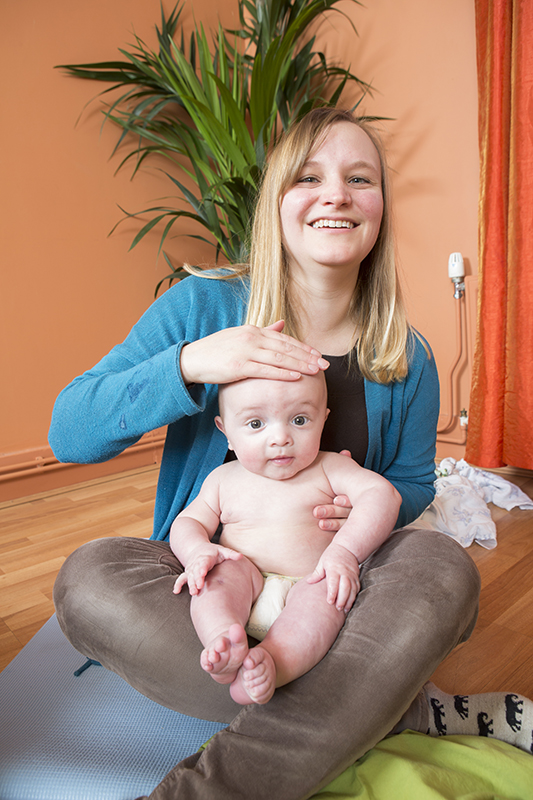
Inductions
Health Works has several experienced practitioners that can carry out natural inductions if your labour has not started on time. A chemical induction at the hospital has a much higher chance of ending with medical intervention, eg, forceps, ventouse or even Caesarian. A hospital induction increases your likelihood of needing drugs and possibly taking away your ideal image of how you wanted your labour to be.
Give your labour a better start with one of the following options – acupuncture, homeopathy or reflexology. These are available 6 days a week, ring reception to book. We strongly advise that you start thinking about a natural induction as soon as you reach 40 weeks as the doctors may not let you go too long after your due date.
Parent and Baby Massage and Yoga
The team: Jo Redmond | Chloe Redmond
Jo and Chloe run unique classes which are a lovely combination of Baby Massage, Baby Yoga and Postnatal Stretches for parents. Baby Massage and Baby Yoga is a wonderful ways to bond with your baby plus give physical and emotional benefits for both of you. Babies are calmer and sleep better and are generally more supple and stronger after these classes. They increase their co-ordination abilities and their nervous system is developed. They also teach a colic routine that is ideal to help babies with digestive problems.
The benefits for parents are the increased confidence in handling their babies plus more awareness of how to soothe an upset baby. They also get to do some yoga style stretches plus make friends with the other parents.
Classes are limited to 13 mums or dads, nannies/childminders, grannies etc. They are held at The Body People venue in 93 Shernhall Street, E17 9HS
Mondays
11.30am – 12.15pm
Tuesdays
2.30pm – 3.15pm
Thursdays
11.00am -11.45am
After each class, we share biscuits, dried fruit and from time to time some home baked goodies. It’s a great way to make new friends
**Online Booking is now available for baby massage and yoga**
Working Parents Baby Massage and Yoga
The Team: Jo Redmond | Chloe Redmond
Monthly on Saturdays we also put on a special Working Parents baby massage and yoga class which has all the fun and therapeutic benefits of the above classes. These classes are for Dads and LGBT Mums.
Upcoming classes are on the Baby Classes With Jo and Chloe Facebook Page.
At The Body People venue in 93 Shernhall Street, E17 9HS.
To book online, please see our booking page.
This will be a fun class plus a social eating cake session afterwards! 14 parents maximum.
The class is a lovely combination of Baby Massage, Baby Yoga and a few fun stretches for parents that will incorporate the babies.
“Thank you for creating such a warm, welcoming place for me to come to” (comment from a dad)
Baby Massage and Baby Yoga is a wonderful way to bond with your baby plus give physical and emotional benefits for both of you. Babies are calmer and sleep better and are generally more supple and stronger after these classes. They increase their co-ordination abilities, their nervous system is developed and we do some great work on their digestion.
The benefits for parents are the increased confidence in handling their babies plus more awareness of how to soothe an upset baby. You also get to eat snacks afterwards and make friends with the other parents.
After the class all or some of the parents go and hang out at Gods Own Junkyard, two minutes walk away, and have some beers and maybe food, with babies in tow of course!
Prenatal Pilates
The team:
Marjan | Claire Harris
Many pregnant women find Pilates a great exercise to do because it builds core stability and strength. Musculoskeletal pain in the pelvic and lower back area is common during pregnancy, however if your abdominals, back, and pelvic floor muscles are toned, they will help you to have a more comfortable pregnancy and birth. Pregnant women who regularly exercise their core muscles can expect to experience shorter labours and reduced lower back and pelvic pain.
In our classes the Pilates exercises will be modified as your body and abilities change because the routines are specifically designed to help your body respond to a developing pregnancy. Attending regular classes throughout pregnancy helps and speeds up the process of getting your body back in shape after childbirth.
The classes are completely safe for mother and baby and have a maximum of 4 pregnant women in each group so your teacher can make sure you receive plenty of individual attention.
Prenatal Pilates classes are a great workout from the first trimester through to full term. You will need an induction class before you start so that the teacher can assess you and your individual needs.
“I would highly recommended these classes as I have found that they not only work but are really enjoyable and fun too.” Lyndsey Jackson.
Postnatal Pilates with (or without) Baby
The team:
Chloe Redmond | Marjan | Claire Harris
Postnatal Pilates classes work on regaining the core strength and stability of the deep muscles around the pelvis and abdominals. The Pilates principles of breath, concentration and centring also help relieve stress and the build up of tension in the neck and shoulders. Many women find the exercises really help in getting rid of the aches and pains of new motherhood. Incorporating the baby occasionally into the class helps take the safe practices into everyday life, speeding up recovery and returning to pre-pregnancy physique.
Antenatal Yoga
The Team
Christina Lecerf | Sarah Rush
Yoga can help women get through their pregnancy with minimal discomfort and is a great way to prepare for the birth. Antenatal yoga plays a very important role in pregnancy. Their bodies are more flexible, this in turn enables them to adapt to various positions when in labour. Their ligaments become more elastic, which in turn can help to reduce labour pain.
Yoga also helps to boost circulation and may help with fluid retention, a common late stage pregnancy problem. The stretching exercises relieve aches and pains including back problems as you are taught correct posture. The relaxation exercises are very balancing and calming and therefore the women appear healthier, both in mind and body.
Health Works classes have 4 – 5 women in each class so you get lots of individualised attention. That attention to detail can make all the difference when you are trying to focus on relieving a specific problem.
Postnatal Yoga
with (or without) baby
The Team
Sarah Rush
Postnatal yoga can be started about 6 – 8 weeks after the birth, strengthens abdominal muscles and your pelvic floor. It also helps you to get back to your pre-pregnancy shape faster. In post natal yoga classes mums will be practising breathing, yoga and relaxation techniques to: strengthen and tone abdomens; realign spines; strengthen pelvic muscles; maintain good posture; practice meditation to achieve calmness; learn about different breathing exercises and how these can affect energy levels
Take time to build up your confidence and enjoy this amazing new stage in your life. If you have previously practised yoga then by the end of the first 6 – 8 weeks you should be able to return to your yoga practice provided it was a straightforward vaginal delivery. For those who had a caesarean birth you should not start before ten weeks. If you have any doubt at all consult with your GP or health professional.
Birth Kit
Many women have benefited from natural labours using aromatherapy massage oils and/or homeopathic remedies. Homeopathy is a natural system of medicine that has no side effects and is completely safe. They do not harm the baby and can be used at any stage of labour.
The remedies work extremely quickly and effectively in labour. For example a labour attended recently seemed to have been going on for 2 days with the woman on all fours unable to move. She was exhausted, chilly and miserable.After giving Kali Carb, within a few minutes she was up and moving around,warmer, more cheerful and better able to cope. She continued to use remedies throughout the labour and was successfully delivered of a baby boy. A little preparation and study of a homeopathic birthing kit can facilitate a positive labour where the mother and birth partner can feel more in control.
The following 14 remedies are ideal in labour and it would be worth buying a THW (The Health Works) kit so as to be well prepared.
-
ACONITE
Often used for panic attacks, Aconite is needed when the mother is anxious, restless and fearful. She is convinced she and/or the baby will die. It can be used for a quick violent labour, which can have a shocking effect on mother and/or baby. It can also be used in newborns when they are immobilized with shock – the remedy can be held inside the baby’s lower lip for a few seconds and then removed.
-
ARNICA
Homeopathy’s most famous remedy – used for trauma and bruising. It is always prescribed after birth to promote healing – women recover incredibly quickly with Arnica. It is also useful in cases of haemorrhaging during or after labour.
-
BELLADONNA
Sudden infection or fever before, during or after labour. Also good for treating mastitis, it can often nip it in the bud in early stages. Alternate it twice daily with Phytolacca.
-
BELLIS/CALENDULA/HYPERICUM
This combination is for use in healing wounds, soft tissue bruising and trauma. Take 2 x daily if there has been an episiotomy, tearing, forceps, ventouse or a Caesarian.
-
CARBO VEG
The indications for this remedy are oxygen starvation of either the mother or the baby – they will be cold, limp, blue or pale looking. It is used in foetal distress cases by giving it to the mother, it will then cross the placenta quickly to reduce risk of asphyxia to the baby. It is also good for painful trapped wind after labour, particularly a caesarean.
-
CAULOPHYLLUM
A great remedy for inducing labour if you are overdue. Also sometimes women in labour experience ineffective contractions that stop/start, or the cervix fails to dilate. In this situation Caulophyllum can establish strong productive contractions.
-
CHAMOMILLA
Many people associate this remedy just with teething and colic – however, it is excellent for a bad-tempered, argumentative labouring woman who finds the pains so unbearable she wants to die.
-
Gelsemium
Next choice if Caulophyllum fails to produce good, strong contractions. Slow and sluggish labour. Heaviness, dazed appearance. Trembling, eg during Transition stage. Upset if hears bad news (eg, cervix not very dilated)
-
KALI CARB
Used for backache labours where the baby is in posterior presentation and most of the pain is felt in the back and thighs. This can be relieved by firm massage on the lower back. The mother is chilly after each contraction, irritable but needs you to be there for her.
-
KALI PHOS
An excellent remedy for exhaustion for both mother and birth partner. It can be crushed and dissolved in a bottle of mineral water and sipped at intervals.
-
PHYTOLACCA
This is essential for post-labour, for cracked, painful nipples. It has averted many a case of mastitis if taken in time – the early symptoms being fever, blocked milk ducts, swollen red lumps on the breast, occasional flu-like symptoms. Don’t stop feeding, ring the N.C.T. breast feeding counsellor and a homeopath.
-
PULSATILLA
Needed when the mother gets weepy and clingy and seems generally helpless and childlike. She can’t bear stuffy rooms and wants lots of fresh air and sympathy. This remedy can be used successfully between 33 and 38 weeks to turn a breech baby naturally and painlessly. It is entirely safe. Pulsatilla is also excellent for the baby blues – that period a few days after labour when every little thing produces tears from the highly hormonal/ emotional new mother. If she then goes on to become post-natally depressed, a THW homeopath can give her a course of specialised treatment involving constitutional and hormonal balancing remedies.
-
SECALE
Tends to be routinely used after the labour to help expel the placenta. If the woman decides to have Syntometrine then Secale can be used to antidote the injection immediately afterwards.
Take the above for a week or so after delivery until more or less recovered. Lastly, some women can feel traumatised by a birth with lots of medical treatment including painful internals, catheters etc. Staphisagria can help them to get over the anger, resentment and humiliation that can haunt a woman after such an experience. This is best prescribed by a qualified THW homeopath.
During labour the above 14 remedies can be given in single doses. If the correct remedy has been selected you should see an improvement within 5/10 minutes. If the symptoms start to relapse then repeat the remedy as often as needed. If the symptoms change then choose another remedy.
You can buy a ready made kit from The Health Works for £25. Homeopaths at THW can arrange an individual appointment for you and your birth partner to explain how to use the kit in more detail.
They can also provide a special pregnancy programme of homeopathic tissue salts that provide cellular nutrition for you and the baby during pregnancy.
After the birth, both you and the baby can benefit from constitutional homeopathic treatment. Your THW homeopath can give you advice about natural approaches to parenting and childhood ailments in general.
Baby and Toddler Sleep Clinic
The team: Marta Gardner nee Neto
Outdated controlled cry methods can be very upsetting to both children and parents and there is evidence to suggest they can have long lasting detrimental effects.
My Gentle Sleep strategies are based on the latest evidence on sleep and brain development. By using them you will be able to support your baby to become a confident sleeper without tears.
If your baby struggles to:
- Get enough sleep
- Fall asleep independently (6 months +)
- Nap regularly and for at least a sleep cycle
- Get through the bedtime routine without crying
- Sleep during the night
- Fall asleep or return to sleep without your support
Book an appointment and let’s start your journey to better sleep! I will support you to address all the above. Plus, you will learn:
- How much sleep your baby needs
- Strategies to help your baby fall asleep independently
- Effective nap and bedtime routines
- How to reduce/eliminate night wakings
- How to cope with broken sleep
Sleep Clinic Consultation
Excellent value for parents with less complex needs
- 1-hour Gentle Sleep® Consultation
- Sleep assessment and sleep diary analysis
- My Comprehensive Gentle Sleep Booklet packed with tried and tested gentle strategies, top tips, the science of sleep, how to support healthy brain development and attachments, what to expect at your child’s age, gentle sleep strategies for naps, bedtime and night wakings, weaning
- 1 follow up email
£100
Sleep Clinic Consultation PLUS
- Sleep assessment and sleep diary analysis
- 1-hour Gentle Sleep® Consultation
- I will give you all the strategies you need to help your child become a more confident sleeper
- Bespoke Gentle Sleep Plan
- My Comprehensive Gentle Sleep Booklet packed with tried and tested gentle strategies, top tips, the science of sleep, how to support healthy brain development and attachments, what to expect at your child’s age, gentle sleep strategies for naps, bedtime and night wakings, weaning
- 2 weeks Full Support
- 1 Follow up email to be used within 6 months.
- Super helpful to get you back on track after holidays or illnesses
£250
Ultimate Sleep Clinic Package
- All of the above PLUS!
- Follow up Consultation at Healthworks
- Healthworks Baby Massage and Baby Yoga lesson
- OR Healthworks Postnatal Pilates (mammas need nurturing too!)
- Gift Voucher £25 off selected Gentle Sleep Packages (save it for the future or pass to a friend! Valid for 1y)
£300
My commitment to you:
- I will support you to achieve your sleep goals in accordance with your parenting style
- I will never suggest that you leave your child crying
- I will only suggest strategies I KNOW will work for you and your baby
My support will be:
- Based on evidence supporting healthy brain development
- Tailored for your child, to address his/her individual sleep issues
- Age appropriate and manageable
What to expect:
During the initial consultation we will:
- Look all aspects of your child’s routine. Including day time activities, naps, temperament, health, feeding and, of course, sleep
- Identify your child’s sleep pattern and sleep associations
- Explore sleep problems and ways to improve sleep
- I will make suggestions and will only include the ones you agree with in the Sleep Plan
Bespoke Gentle Sleep Plan
Includes:
- All we discussed during the Initial Consultation
- Step by step plan to improve your child’s sleep
- Guide to how much your baby ‘needs’ to sleep
- Specialist strategies for resolving sleep issues
- Suggested routine specific for your child
For more information on my methods and services please visit my website www.gentlesleepconsultant.co.uk
